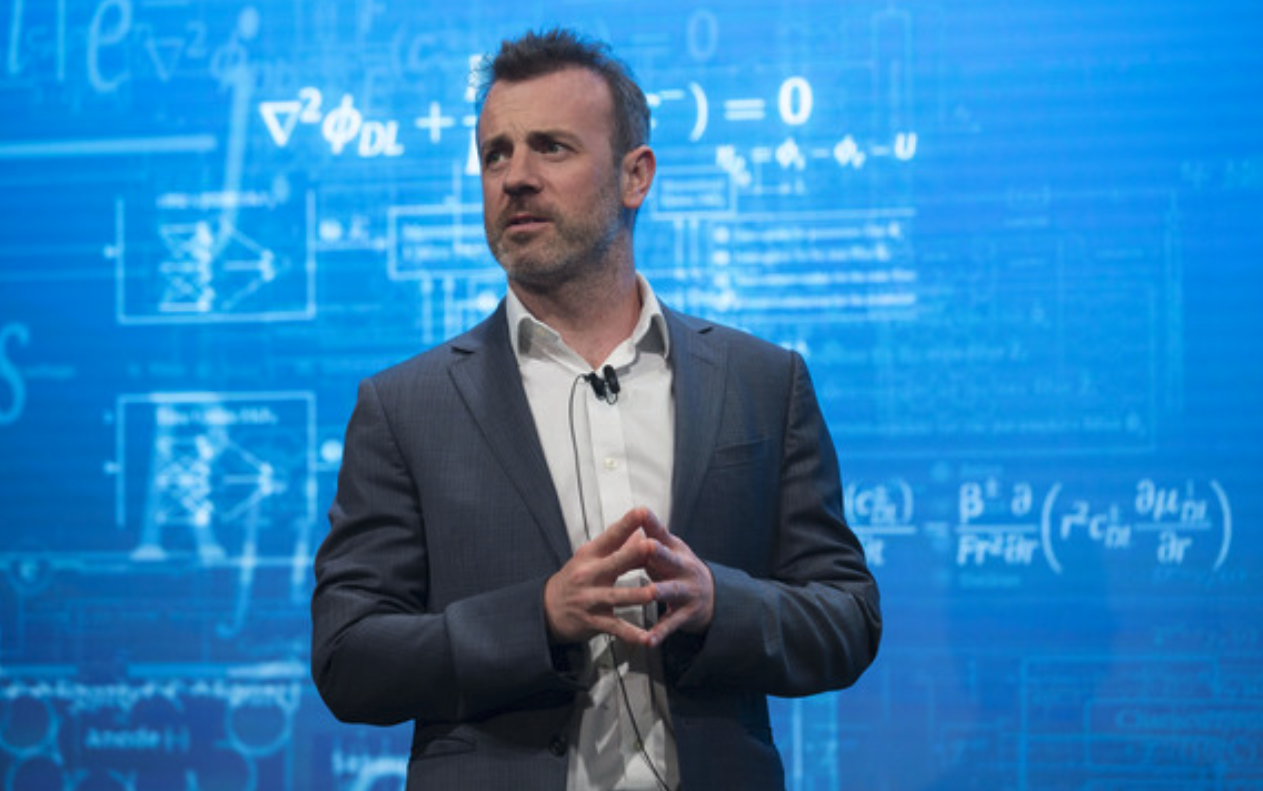The climate crisis is a problem of atoms. We have emitted too much carbon dioxide, methane and other greenhouse gases into the atmosphere — with no end in sight.
A solution to the climate crisis is also a problem of atoms. We need to decarbonise industries like concrete, steelmaking, chemicals and agriculture. In addition, we must start removing carbon dioxide from the atmosphere.
It stands to reason that the problem can’t be solved by software alone. All the challenges mentioned above require hardware solutions, often originating from fundamental research — which is why it’s time to accelerate hardware climate innovation, especially in Europe. Here’s how.
1. Fund more science-based hardware climate startups
The US still dominates when it comes to high-risk hardware solutions such as fusion energy. This year, there were 21 privately-held companies aimed at commercialising fusion in the US, versus six in Europe. Furthermore, US fusion startups have raised a staggering $2.7bn of private funding since November 2021. To put that into context, all fusion companies globally have raised $4.7bn in private funding to date.
Part of this is due to the fact that many European VCs prefer software and only invest a fraction of their funds into hardware. VCs often fear long development times and high capital costs when investing in hardware, science-based startups.
A recent survey of European deeptech companies showed fundraising was the number one challenge in the scaleup phase. Companies struggled to raise large funding rounds and find a lead investor.
Many US climate investors like Lowercarbon Capital, Voyager VC and Climate Capital are looking for investment opportunities in Europe and investing actively in deeptech and hardware climate startups.
However, if Europe wants to have a thriving climate tech ecosystem and develop sovereignty in future key climate technologies, domestic investors must become a more important source of funding for deeptech startups in the region.
Recent advancements in AI and machine learning-based tools that cut the development time and cost of hardware solutions should encourage European VCs to invest in hardware and deeptech startups. For example, DeepMind’s AlphaFold published an open database of 200m protein folding structures last July, a groundbreaking piece of work that will accelerate the development of many biology-based climate solutions.
2. Create government-backed moonshot factories
Some deeptech innovation is so risky that even the most risk-taking venture capitalists are not ready to invest in their development. That’s where governments can step in, effectively advance transformative technologies and create commercialisation opportunities.
The US government has successfully done this, most notably via its Defense Advanced Research Projects Agency (DARPA) programme. Since the creation of DARPA, it has given rise to inventions like the Global Positioning System (GPS), the internet and, most recently, the Moderna Covid-19 vaccine.
DARPA is an unconventional research agency. In DARPA, programme managers who only have roughly five-year appointments fund researchers across different universities and private companies to realise their revolutionary technology-enabled vision.
Witnessing the incredible success of DARPA, the US has applied the so-called “ARPA innovation model” to other domains. For example, the Advanced Research Projects Agency-Energy (ARPA-E) funds high-risk and high impact energy innovation. Since launching ARPA-E in 2009, 200 of its research projects have attracted $11bn follow-on funding rounds from the private sector, and 131 companies have been formed.
The UK is finally replicating the ARPA innovation model in its soon-to-be-launched Advanced Research and Invention Agency (ARIA), which will fund transformative research across sectors. I am following ARIA with excitement, as Ilan Gur, the founder and former CEO of innovation non-profit Activate, and Matt Clifford, the cofounder and CEO of an international talent investor Entrepreneur First, are in charge of ARIA’s launch, as the first CEO and first Chairman, respectively.
In contrast, the European Union (EU) is sticking to its conventional research funding practices. It could consider joining forces with the Joint European Disruptive Initiative (JEDI) Foundation, an independent non-profit stating to be the “European ARPA”.
The EU should be highly incentivised to adopt the effective ARPA model and advance transformative energy technologies, especially now in the turbulent energy security environment.
3. Fix the broken university technology transfer system
Many deeptech and hardware climate solutions originate from research, which means that many startups commercialising this research go through the university spinout process.
But European universities often back these companies on very unfavourable terms. It’s especially bad in the UK — one of the region’s key hubs for research. Spinout.fyi, the world’s largest open-source database on university spinouts, found out that UK universities demand more than three times more equity than US institutions.
Startups can find it very hard to raise subsequent funding from other investors if the university owns too much. Investors worry that founders don’t own enough in the business to stay motivated — with that ownership further diluted in future rounds. They can also feel that there’s not enough ownership of the company left to make a necessary return, or that universities don’t bring enough to the table in terms of operational support for the company.
The spinout process also takes too long. MIT, one of the renowned leaders in research commercialisation, typically precedes a commercial licensing agreement with a faster option agreement. The option agreement enables the startup to start raising capital, building the team and doing further technology development before negotiating a commercial license. The option agreement also grants the company the exclusive right to negotiate a license with the university.
My personal experience interacting with the technology transfer offices in Finnish universities left me feeling there was room for improvement. I approached universities this spring to see whether they had climate innovations I could spin out and commercialise and was left confused. Most universities could not point out their specific research and technologies or were vague about their spinout terms.
There are several encouraging initiatives, such as MIMIR, Spinout.fyi and Wilbe, attempting to change the course of technology transfer in European universities, but there is still much work to be done.
4. Educate scientists about entrepreneurship
People with a deep scientific background are vital in getting deeptech climate solutions from the lab to the market. However, PhD students and postdocs are seldom exposed directly to entrepreneurship during their studies.
That means it’s fallen to the private sector in Europe to pick up the slack. I’m thinking of initiatives like Deep Science Ventures’s Venture Science Doctorate program that combines research and venture building in its three-year PhD programme. Participants aim to launch a research-based company by the end of the programme.
Wilbe, the UK-based venture studio focusing on science-based startups, also organises the popular Become a Science Founder course for researchers, which teaches them valuable skills on company building and the tech transfer process.
Universities should follow the course shown by these venture studios and encourage their researchers with inventions to spin out their companies. As many universities already offer entrepreneurship courses and host vibrant entrepreneurship communities, making PhDs and postdocs aware of those opportunities could be a low-hanging fruit to get started. After that, universities could design complete study programmes incentivising and supporting PhDs and even Masters students in venture building.
All in all, Europe holds massive potential to be at the forefront of fighting the climate crisis with deeptech and hardware innovation. Furthermore, the Russian invasion of Ukraine revealed severe vulnerabilities in European energy security that it needs to solve rapidly and sustainably. The time for Europe to step up its game is now.
Pauliina Meskanen is the founder of the Survivaltech.club newsletter and consultancy on deeptech climate innovation and startups. She is a venture partner at Climate Capital Bio and an advisory board member at Übermorgen Ventures.



